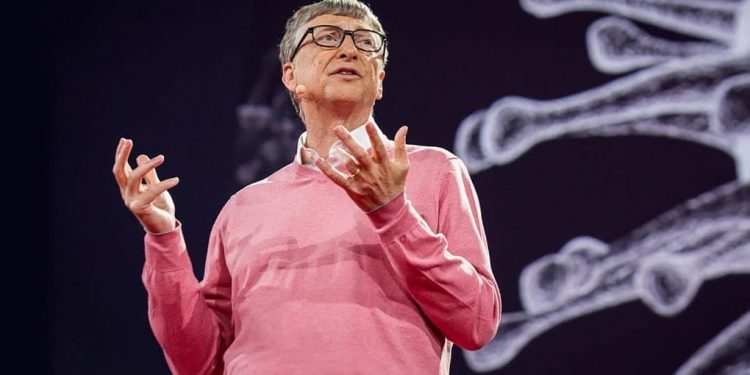Agencies-Gaza post
Bill Gates tell us how to prevent next Pandemic
Mark Honigsbaum
You’d have to be living under a rock not to know we are in the midst of one of the most devastating pandemics in history. Just how devastating became clear earlier this month when the World Health Organization released a report estimating the global excess death toll due to the pandemic as 15 million – nearly three times the official Covid death count.
Other authorities think global excess deaths may be closer to 18 million. These are awfully big numbers, but they pale in comparison with the 1918-1919 Spanish influenza pandemic, which killed an estimated 40 million people – equivalent to about 150 million globally using current population figures.
“Gates has been accused of using vaccines to plant microchips in unsuspecting populations and is a prominent target for anti-vaxxers”
Most of all, he writes, we need to “practice, practice, practice” by holding regular pandemic exercises and by funding a 2,000-strong team of global pandemic firefighters – Gates, who is fond of acronyms, labels this team Germ, short for Global Epidemic Response and Mobilization.
He does, however, acknowledge that such measures will count for nought if, having identified gaps in our pandemic response systems, we fail to correct them.
In 2016, for instance, Britain’s Exercise Cygnus identified gaps in the UK’s readiness for a flu pandemic, including insufficient stocks of PPE, but no one acted on the recommendations, leaving the UK to beg and borrow PPE from other countries when disaster hit.
Similarly, US planners had long known that mass diagnostics would be crucial in the event of a pandemic.
Yet the Centers for Disease Control and Prevention failed to roll out Covid tests at anything like the scale required, hampering contact tracing and effective isolation measures.
Because of America’s federal system of government, state governors were often unsure who was responsible for what.
The result was that the US suffered one of the highest Covid mortality rates in the world. By contrast, countries such as Singapore, Vietnam and Canada, which had been badly hit by Sars in 2003 and had absorbed the lessons, responded quickly and decisively to Sars-CoV-2, as the coronavirus that causes Covid is known.
So far, so logical. But if preventing pandemics was simply a matter of better logistics and trusting in scientific experts, we would surely have solved the problem by now.
That we haven’t is down to the fact that science is full of uncertainties, especially in the early stages of a pandemic when reliable data on the infectivity of a pathogen and its mode of spread may be wanting.
Moreover, scientists are prone to blind spots – in 2014, for instance, few experts thought that Ebola, a virus that had previously caused outbreaks across central Africa, posed a threat to countries in west Africa such as Sierra Leone and Liberia. Similarly, based on the experience of Sars, which was easy for clinicians to spot because those infected became rapidly and noticeably ill, few experts thought that Sars-CoV-2 was capable of asymptomatic spread until it was too late.
In other words, preventing pandemics is as much an epistemological problem as a technical one.
We can prepare for known pandemic threats, but so-called Black Swan events are by definition unknowable and unpredictable.
If this problem has occurred to Gates, he does a good job of disguising it. “I am a technophile,” he explains unapologetically. “Innovation is my hammer.”
Nor is he interested in addressing the role of information technology in spreading conspiracy theories about vaccines or misinformation about the effectiveness of lockdowns and mask mandates. This is surprising given that Gates has been accused of using vaccines to plant microchips in unsuspecting populations and is a prominent target for anti-vaxxers.
But rather than calling for a rapid reaction team to neutralise fake news about vaccines, Gates ducks the issue, writing that he is confident “the truth will outlive the lies”.
I do not share his optimism. If anything, the experience of Covid demonstrates that conspiracy theories now present a major impediment to the management of pandemics along rational scientific lines. Never mind Germ. What is needed is Dirt – Disinformation Response Team.
Source: The Guardian

















